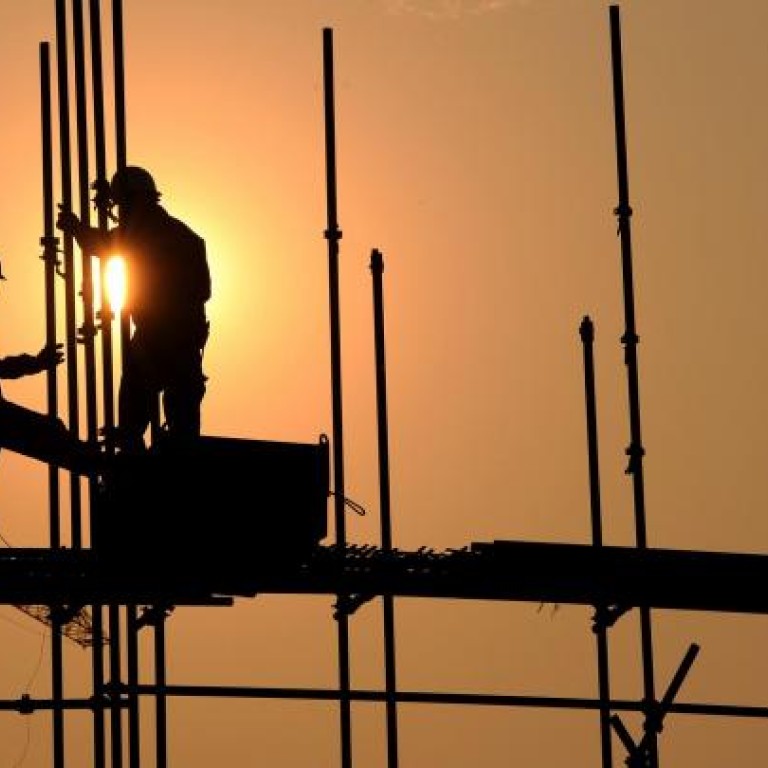
Forget about stimulus, support growth with sweeping reforms
For China to boost its economic prospects over the long term, the government needs to deregulate interest rates and cut red tape
World Bank boss Jim Yong Kim is upbeat about China's growth prospects.
Speaking in Tokyo last week, he said China's leaders stood ready to boost the economy. "Once the political change is complete, my sense is that they'll be very aggressive in trying to restore growth," he said.
Some China-watchers assumed he meant the country's new generation of leaders would cement their accession to power with a full-blown stimulus package. That would mean a relaxation of the government's property market restrictions, coupled with a hefty interest rate cut and orders from Beijing to the banking sector to ramp up lending to fund local government-backed infrastructure investments.
In other words, they are looking for a repeat of 2009's stimulus efforts, albeit on a smaller scale.
That would be aggressive all right, and it would certainly stimulate headline growth, but it's not what Kim had in mind.
The sort of aggressive steps Kim wants to see are wholesale deregulation and liberalisation measures of the sort the World Bank detailed in a major report on China's economy back in March.
There are some signs policymakers are heeding the bank's advice. Last week, the State Council announced it was scrapping or loosening several hundred regulations in an attempt to cut through the tangle of red tape that hinders private business in the country.
For example, from now on, branches of foreign-owned banks will no longer need the regulator's permission to move premises. Similarly, listed companies will no longer need regulatory approval to launch share buy-backs.
These moves are welcome, but they are only baby steps. They can hardly be called aggressive, and their impact on China's growth rate will be negligible. If Beijing really wants to support activity through the current slowdown and into the coming years, policymakers will have to be altogether bolder.
Efforts to dismantle cumbersome bureaucracy could be far more forceful. In its updated economic forecast published earlier this month, the Asian Development Bank noted that services made up just 43 per cent of China's economy, compared with 55 per cent in India, and that the service sector's productivity was low and its contribution to growth was modest.
"The burden of heavy regulation is the single tightest bottleneck constraining the sector," the ADB's economists warned, explaining that a mass of unnecessary restrictions protected entrenched players, erecting barriers to entry that stifled competition, impeded innovation and depressed productivity.
"International experience shows that regulatory reform can catalyse competition and deliver significant economic benefits," they concluded. "It must be a top priority for policymakers."
Beijing could also press ahead with fiscal reform. Although on the budget government revenues are just 22 per cent of gross domestic product, according to analysts at Capital Economics, total government revenues, including the non-tax income of local governments, amount to a stiff 35 per cent of GDP. Lowering that burden would significantly boost private-sector activity, especially private consumption.
But the biggest single step Beijing could take to support growth in the longer term would be to deregulate interest rates.
At the moment, the central bank sets benchmark deposit and lending rates, and according to most analysts, it sets them far below the rates a free market would dictate.
That might sound like a good thing. But according to economists at Standard Chartered, artificially low deposit rates cost Chinese households 1.6 trillion yuan (HK$1.98 trillion) last year. That's 3.5 per cent of GDP: a huge drain on household income and consumption.
Excessively low lending rates also damage growth. That's because, rather than raise rates, the authorities have tended to react to economic overheating by tightening loan quotas.
As a consequence, the available funds get channelled towards well-connected but inefficient state companies, while the far more productive private sector is starved of credit. The result is misallocation of capital on an epic scale.
The central bank should take a step back, merely setting the rate at which it lends to banks, much as the US Federal Reserve sets its Fed Funds target rate. Commercial banks should then be left to determine the interest rates they pay on deposits and which they charge borrowers.
The result would be more realistic interest rates, a more competitive financial landscape and an end - eventually - to the mispricing and misallocation of credit. The improvement in China's economic health, and the boost to its long-term growth prospects, would be enormous.
That's the sort of aggressive step Kim really had in mind.

